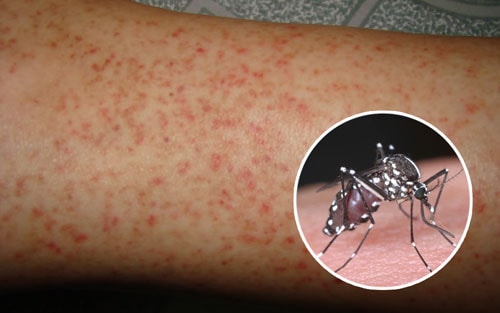March, release Wolbachia mosquitoes to kill dengue mosquitoes
The Ministry of Health has just approved a pilot plan to release Wolbachia-carrying mosquitoes to prevent dengue fever under the Dengue Elimination Project. This is an activity within the Dengue Elimination Project in Vietnam, chaired by the Ministry of Health.
According to the plan just approved by the Ministry of Health, this year mosquitoes carrying Wolbachia bacteria will be released in 8 central villages of Vinh Luong commune, Nha Trang city (villages Luong Son 1-2-3, Van Dang 1-2-3 and Vo Tanh 1-2). The release of mosquitoes is expected to start from March 2018 and last for 12-18 weeks.
The project has mapped out over 200 mosquito release cells in the area, each measuring 50mx50m (2,500m2 in area). Each week the project will release approximately 100 mosquitoes into each cell, corresponding to an average release rate of 1 mosquito/25m.2/week.
 |
| The release of Wolbachia mosquitoes can only be carried out after obtaining high community consensus (80% or more). |
The release of Wolbachia mosquitoes will only be carried out after obtaining a high level of community consensus (80% or more). Therefore, before releasing mosquitoes, project experts will coordinate with relevant units to strengthen communication and community consultation. Then, a survey will be conducted on the level of public awareness of this method and consensus will be obtained from 370 randomly selected families in the area...
Previously, a research team from the National Institute of Hygiene and Epidemiology, along with Australian scientists, successfully bred a strain of Aedes aegypti mosquitoes carrying Wolbachia bacteria. The mosquitoes were caught from Tri Nguyen Island, Khanh Hoa. Wolbachia mosquitoes were released into households on Tri Nguyen Island twice, in April-September 2013 and May-November 2014.
Epidemiological surveillance results in recent years show that while the number of dengue cases in Nha Trang City and Khanh Hoa Province are both very high, on Tri Nguyen Island alone, since the end of releasing Wolbachia mosquitoes in 2014, there has not been any concentrated dengue outbreak. In August 2016, the results of a pilot study using Wolbachia-infected mosquitoes on Tri Nguyen Island were approved by the Ministry of Health for safety and the ability to inhibit the Dengue virus.
The Wolbachia-carrying Aedes mosquitoes used by the Project for field release are locally sourced mosquitoes, which have Wolbachia bacteria through the process of crossbreeding many generations of local male mosquitoes with some of the original Wolbachia-carrying female mosquitoes. They have the same morphological characteristics and feeding habits as wild Aedes mosquitoes (female mosquitoes seek out human blood to get the nutrients needed for their eggs, male mosquitoes only feed on nectar/fruit juice).
We cannot tell with the naked eye which mosquitoes have Wolbachia or not (this can only be determined by high-tech tests). The Wolbachia method can be applied simultaneously with other measures to prevent dengue and Zika.
Medical experts say that Aedes mosquitoes carrying Wolbachia bacteria are not genetically modified mosquitoes and are not related to genetic modification technology because the Wolbachia method does not involve any interference with the mosquito's genome.

